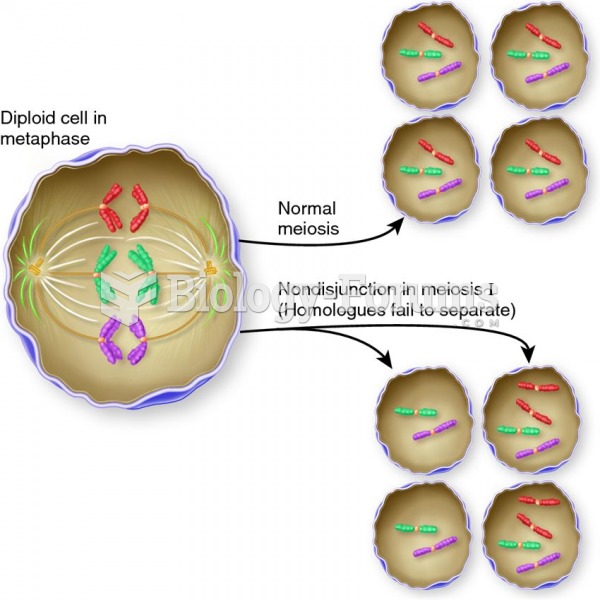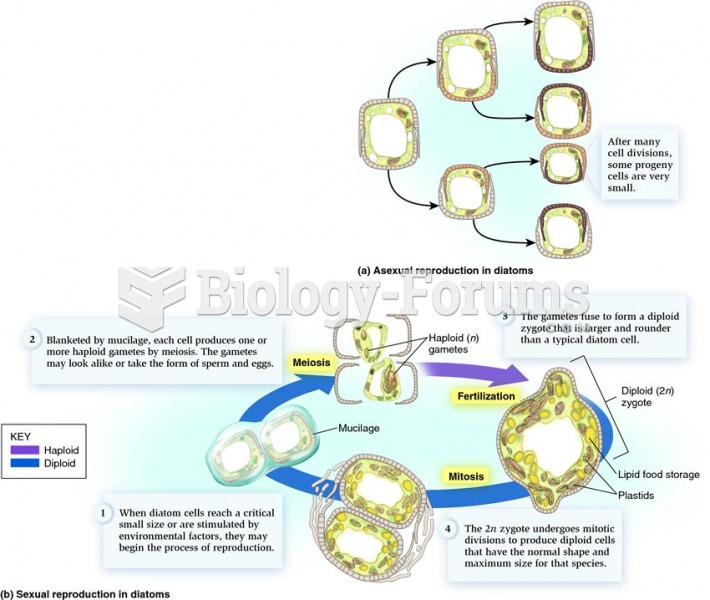|
|
|
Nitroglycerin is used to alleviate various heart-related conditions, and it is also the chief component of dynamite (but mixed in a solid clay base to stabilize it).
Glaucoma is a leading cause of blindness. As of yet, there is no cure. Everyone is at risk, and there may be no warning signs. It is six to eight times more common in African Americans than in whites. The best and most effective way to detect glaucoma is to receive a dilated eye examination.
There are more bacteria in your mouth than there are people in the world.
A seasonal flu vaccine is the best way to reduce the chances you will get seasonal influenza and spread it to others.
More than nineteen million Americans carry the factor V gene that causes blood clots, pulmonary embolism, and heart disease.







